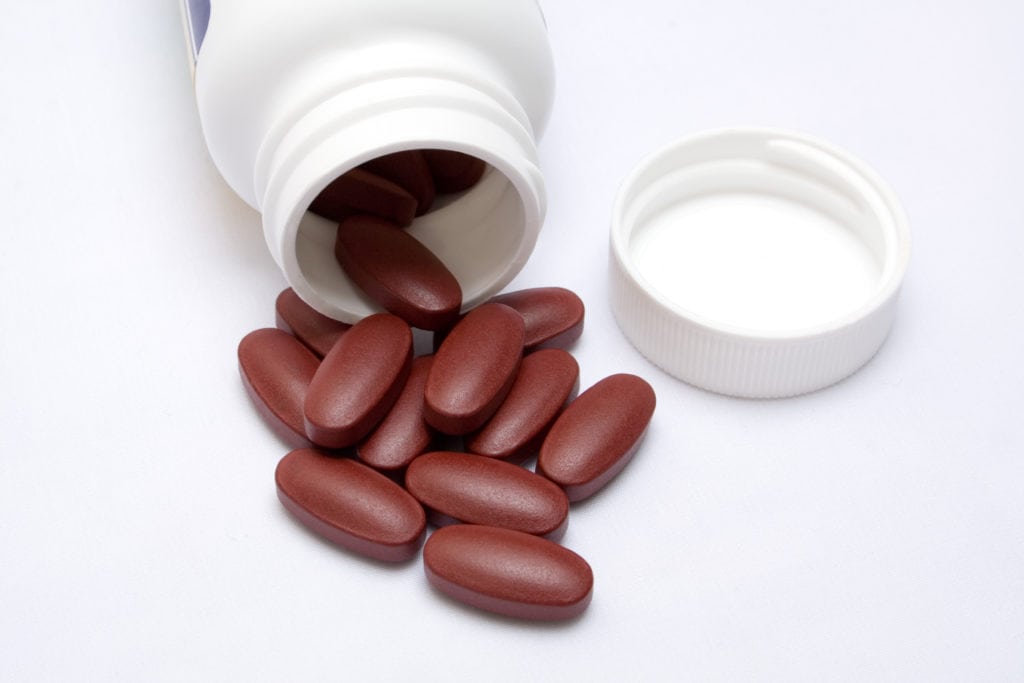
I’ll be honest. What you’re about to read will not give you crystal clear answers about your digestive problems. It will, however, help you understand probiotics, where to get them from and how they can relieve constipation.
Constipation means struggling to go to the toilet, or struggling to go enough. Frequency, consistency and difficulty are the three components of your bowel movements that tell you whether you’re constipated or not. Constipation can happen to anyone at any stage in life, and it’s more common than you think.
While there are many factors that could be causing your constipation, let’s talk about one of the most important ones: your gut flora. Gut flora are all the different kinds of bacteria that live in your gastrointestinal (GI) tract. There’s a lot of them to talk about. In fact, if you were to count up all the cells in your body, the number of bacterial cells in your GI tract is about 10 times that amount. That’s like having 9 people worth of bacterial cells living in your gut alone!
Scared? Don’t be. These little workers are doing you a great service.
The gut flora are permanent residents of your GI tract, and although exactly what they do is still a mystery, we do know that they provide multiple health benefits. As you’re digesting food, sitting at your desk, sleeping, traveling and going about your life, your gut flora is hard at work helping you manage inflammation, improve your brain functions and keep your poo in check.
Probiotics
Probiotics are live bacteria that we can consume. They help to improve the number of good bacteria in our gut, which then helps to improve our health and wellbeing.
Probiotics can be particularly helpful for the management of constipation. A review of 14 randomised studies by King’s College (London) found that probiotic supplements improved various symptoms associated with constipation. Probiotic supplements increased poo frequency, reduced bowel transit time and improved the consistency of a poo. The bacteria Bifidobacterium lactis was the most efficient at assisting constipation. This is great news because Bifidobacterium lactis is one of the most commonly used strains of probiotic, along with lactobacillus.
Having said that, there is no one specific strain of bacteria that I can assure will benefit you the most. Your gut flora is unique, as is everyone else’s. One of the things you could focus on is supplementing your diet with a variety of fermented foods to help keep your good flora in high numbers. This will prevent the bad flora (the type that cause gas, bloating and constipation) from overtaking the good.
Eating more probiotics
- Try including more natural yoghurt, kefir, kim chi, sauerkraut, miso and pickles in your diet.
- Eat fermented foods as fresh as possible to maximise the amount of bacteria.
You could also try a supplement, but be careful when choosing one. Certain bacterial strains used in the industry don’t survive the harsh GI tract environment, making them useless. If you choose to take a probiotic supplement, do some research on it before making the investment. Check the strain and number of live cultures contained in the product and ensure it’s a brand that you trust. Talk to a professional about the best time to take it; a study in 2011 found that taking the supplement with a meal helped to protect the bacteria, and this was even more effective if the meal contained a small amount of fat. The timing is also important if you are taking antibiotics (these tend to upset the GI tract as they may eliminate all bacteria and make the gut more vulnerable).
Prebiotics
In addition to probiotics, we also have prebiotics; foods that promote gut flora growth. They feed the good bacteria in you GI tract You can find prebiotics in a number of plant foods such as:
- onion
- leek
- asparagus
- banana
- garlic
- cabbage
- beans
- legumes – beans (kidney, butter, broad), chick peas, lentils
- wholegrains – wheat, rye, corn, oats
Prebiotics are also added into foods (check the ingredients label).
Studying all the different types of prebiotics and the way that they interact in our gut is a massive challenge for scientists. For example, some research has found that artichokes and olives are digested in a way that doesn’t compromise the probiotics and prebiotics they contain. They suggest this happened because of the specific texture of these foods. The roughness of olives and artichokes protected the delicate chemical components.
Interestingly, the combination of probiotics and prebiotics taken together could be more beneficial than taking one or the other. Eating what’s known as a symbiotic yogurt (yoghurt with both prebiotics and probiotics) has been shown to improve certain aspects of people suffering from functional constipation (constipation with no known cause).
Research is quickly growing in this field, and scientists have investigated many bacteria strains in order to understand the different ways they can benefit our health. Sadly, studies have tended to use probiotics made for purposes of the research, and don’t always imitate what’s available on the market. So, if you’re looking to improve your bowel health, do some trialling and stick with what works for you. Unfortunately, there is still not enough evidence to recommend a specific probiotic for relieving constipation.
I’ll always have an all-foods, whole-foods approach and so encourage you again to eat more fermented foods like yoghurt, kefir, kim chi, sauerkraut, miso and pickles and try prebiotics, found in onion, leek, asparagus, banana, garlic, legumes and whole grains. Of course, overall diet quality is also going to contribute to how your gut feels and how often you use the toilet.
If none of the options work, please seek help with a qualified professional. Your body will thank you for it.
Happy pooing!
Note: consult with your doctor if you have a compromised immune system before taking probiotics.



